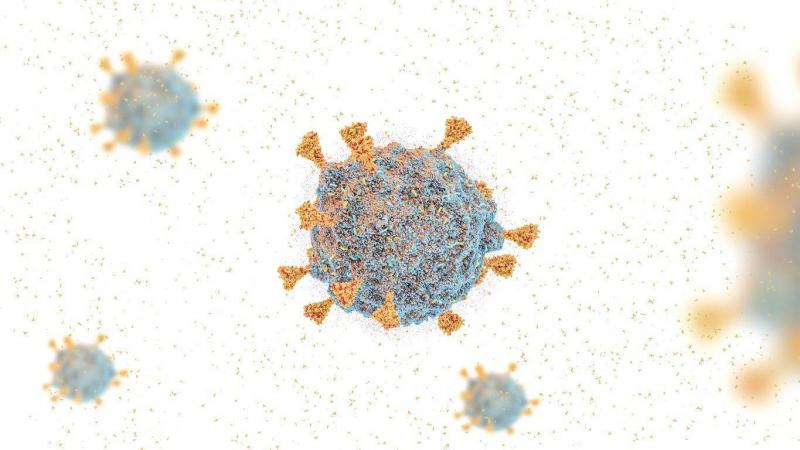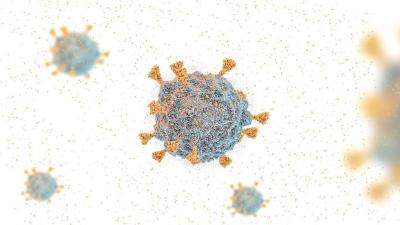According to the American network CNBC, the IHU variant, or B.1.640.2 strain, predates the Omicron variant and has successfully infected only 12 cases in France, compared to 100,000 cases of Omicron infection in the United States and the United Kingdom alone. However, American sources report that French scientists have stated this new variant, named IHU after the initials of the university where it was discovered, could be more transmissible and spreading the infection, as well as potentially more resistant to vaccines, based on current knowledge.
The French scientists at the IHU Mediterranean Infection Institute explained that the new variant of the SARS-CoV-2 virus has 46 mutations, including 14 mutations on the virus's spike protein. Approximately 12 cases of the IHU variant or B.1.640.2 strain have been detected near Marseille. However, no cases of this variant have been found or detected in other countries, and no samples of the new mutation have been collected for examination by the World Health Organization. It is believed that the variant originated in Cameroon or France, as the first person infected arrived in France from Cameroon.
The B.1.640.2 variant of the SARS-CoV-2 virus is a different type of virus because it has many genetic changes compared to the original version of the virus, which first appeared in 2019. Researchers explained that two of the mutations in the spike protein of the IHU variant, which is the part of the virus that attaches to human cells allowing infection, are N501Y and E484K. The former first appeared in the Alpha variant B.1.1.7 and is known to increase the virus's transmissibility and spread among humans. The latter mutation, E484K, is an escape mutation that allows the virus to evade the body’s immune response, meaning that variants with the E484K mutation can infect individuals more easily even if they have been vaccinated.
This mutation is present in the Alpha B.1.1.7, Beta B.1.351, and Gamma P.1 strains, leading scientists to believe that the presence of these mutations indicates the IHU variant is likely more transmissible and more vaccine-resistant than the Omicron variant.




